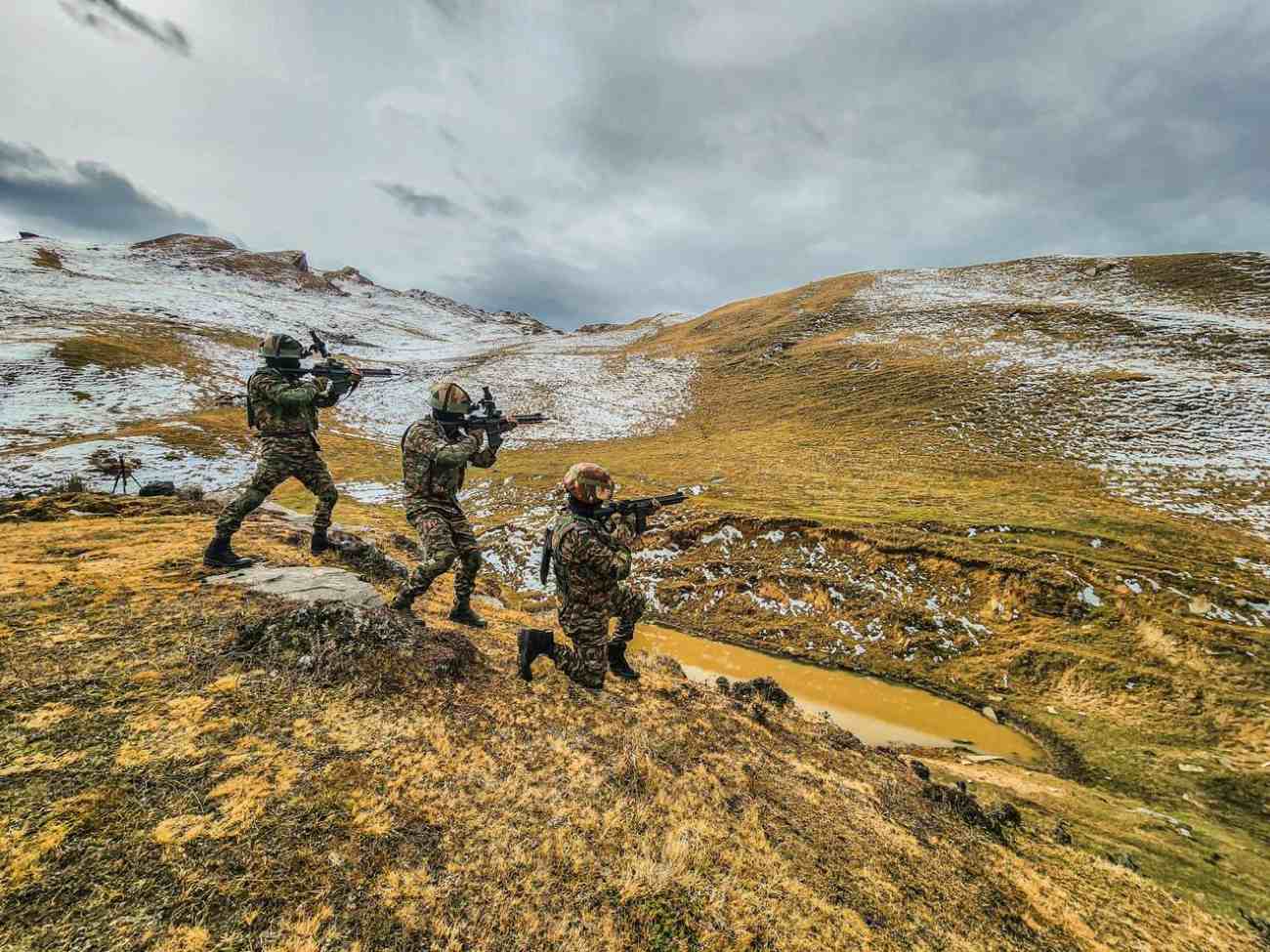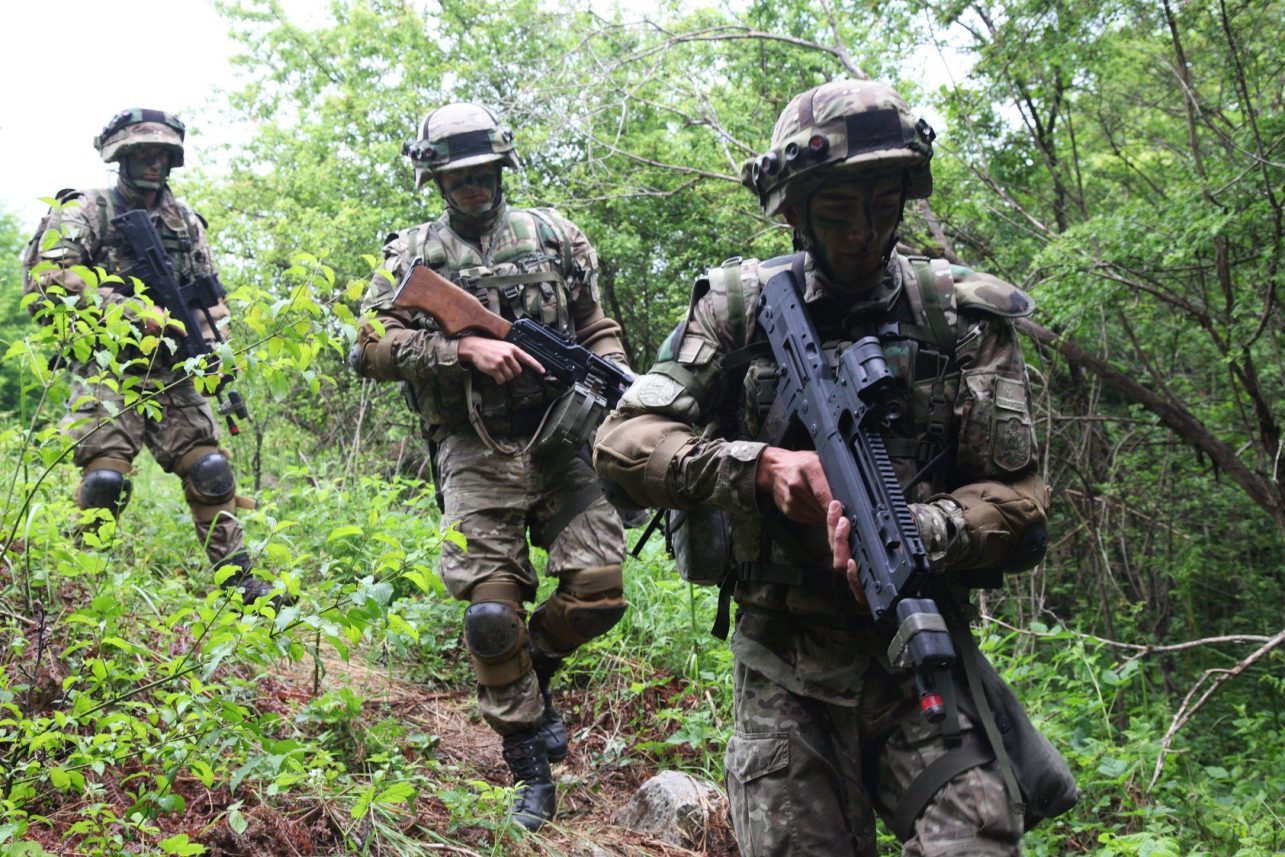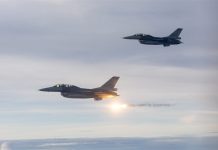Policy planners, security forces, various police formations, and the rank and file, who have been through the thick and thin of three and a half decades of fighting in Kashmir, have learned numerous gorilla and proxy war tactics not generally taught during training as recruits.
The experience they gained while tackling enemy attacks is one of the reasons for gaining the upper hand on the enemy. Without guerrilla fighting of the nature Pakistan has unleashed in J&K, our regular forces would not have the compulsion to acquire anti-terror training.
When a proxy war of mixed high and low intensity is unleashed, and the civilian administration declares some regions partly or fully disturbed, the commanders of security forces have to carry the twin burden of fighting the enemy and maximally saving the civilian population from collateral damage.
The Indian democratic dispensation has not considered the damage that can emanate from the dichotomy of overall supervision of the gorilla (or proxy) war by the duly designated joint civilian and military brass.
In such a situation, the field commander’s assessment is usually exclusively professional and pragmatic. He and his structure pursue one and only one goal, viz., superior action and foolproof security of his men with a finger on the trigger of the weapon 24×7.
Contrarily, this is not the only priority with the local civilian authority at the command level. He cannot be anything but a conduit through which the high command operates. And the final authority has drawn power and strength from the claptrap of a quixotic majority.
Therefore, generally, factual or notional achievements with which the fighting forces have to be crowned are quietly and subtly stolen from them and put as more shining feathers in his hat by the co-sharer of power.
A gorilla or a proxy war cannot be defeated and uprooted lock, stock, and barrel. World history has shown it. And if the person at the apex of the joint supervisory entity repeatedly asserts that terrorism has been uprooted from the valley, he is not only telling a lie that misleads the people but is also playing with the precious lives of Bravehearts who make priceless sacrifices in meeting the challenge.
It is because they begin to believe in his false utterances and lower their guard feeling confident that they are out of risk. That is precisely what the enemy wants. The enemy rejoices at the civilian authority giving a clean chit of dismantling the terrorist structure.
Why do authorities trade lies in positions of power? They tell it knowingly. This reflects how inadequately they are brought up in the school of democracy, where the first lesson should be to abjure self-glorification. Perhaps they would be inclined to observe that lesson, but the fear of being asked to remain content with playing second fiddle harkens them not to go away without playing the underdog.
What happened in the recent attack on a military vehicle in Bhatta Durian of Mender tehsil in which five jawans of 5 RR attained martyrdom? For a year or more, local authorities in Kashmir have been continuously trumpeting that terrorism has been liquidated from the State, and the State has entered a new development phase.

High-sounding statements about large investments, startups, new industries, etc., flowed frequently. The exaggerated narrative created some sense of complacency among security personnel and commanders.
Not a single soul in Kashmir Valley would take the narrative of self-glorification either seriously or credible. And those who painted the picture bright did so to please their superiors. So, the lie was sold to those who feel elated to have been told a lie.
For the last three years, the border districts of Poonch and Rajouri — on the south Pir Panchal — have emerged as the areas where the Pakistani ISI has succeeded in making deep inroads into some segments of the Muslim population.
Chamrer forests of Surankot have become a stronghold of the jihadists, where the commanders of various Pakistan-based terrorist organizations reportedly man their camps. Rajouri, in particular, has become a hotbed of radical Islamists who are said to be receiving full cooperation from the Muslim administrative staff in the district.
In the last two years, acts of insurgency and terrorism have steadily increased. The Hindu minority community of the twin districts of Poonch and Rajouri is living in constant fear, and most of them have silently migrated to Jammu City. It is something like an unrecorded continuation of the ethnic cleansing of the Kashmir valley of its Hindu population.
There is a strong feeling among Hindu youth not to depend on the security forces for their safety and secure ty but be their protectors and defenders.
From October 11, 2021, to April 20, 2023, at least five attacks were made by the jihadists on Indian security forces or civilians of the twin districts, including the attack on the Hindu minority members in Dhingra village of Rajouri district, taking a toll of 25 army men and more than seven civilians.

Massive Terror Attack
The question is this: Should a military truck have been allowed to ply solo along a road running through the terrorist-infested area? If the authorities at the helm of affairs had been emphasizing security forces not lowering the guard in any case instead of glorifying themselves for so-called bulldozing the terrorist outfits and their hideouts, we would not have to suffer the unbearable loss of our five jawans.
We will not be far from the truth if we say that our policy planners are still suffering an information deficit about the true nature of the proxy war our army is called upon to fight.
We do not know what exactly transpires between the civilian and military authorities when they so often meet to take stock of the current ground situation of armed insurgency in J&K. For their information and more introspection, we would like to reproduce here from CNN-News18 of April 20.
“The Lashkar-e-Taiba is again in the news after intelligence sources said the Pakistan-based group was behind the Poonch terror attack on Thursday. The often-banned organization, which has taken on many names occasionally, has had the compulsion to carry out so-called jihad in Kashmir.
Lashkar sources in Lahore, South Punjab, and Rawalpindi told CNN-News18 that this compulsion stemmed from nothing but personal gains for their leadership. From capturing film halls in Lahore to extortion and forcing people to pay more zakat in the name of religion to training youth for fighting in Kashmir, the Pakistan-based group’s agenda is to be the only one relevant.
The sources added that it wants to create a parallel army in Pakistan for its gains and extort money from Pakistani generals as non-state actors.
Lashkar had gone off the radar after the Inter-Services Intelligence (ISI) ordered it to fight alongside the Taliban in the Afghan War. Sources said the Poonch attack ahead of the high-profile G20 meeting in Jammu and Kashmir was a show of power from Lashkar even as a crisis was brewing on the Pakistan-Afghanistan border.”
One day after the terrorist attack, the Pakistan Ministry of Defense made an application to the Pakistani Supreme Court arguing that since India was about to attack Pakistan, the order for beginning the election process for Punjab Assembly should be withdrawn.
All this is happening before the G-20 meeting begins in Srinagar. Pakistan has given this news media hype only to impress upon the visiting delegates of the G-20 that there is no peace and tranquillity in J&K under the Indian administration.
It also has to be understood that there are elements in Pakistan who would be gleeful if the visit of Bilawal Bhutto, Pak foreign minister to India, scheduled for 3-4 May SCO foreign ministers’ meet gets scuttled somehow.
Shahbaz Sharif’s government will try its best to attribute the collapse of his government to no other reasons but the machinations of India.
- Padma Shri KN Pandita is the former Director of the Centre of Central Asian Studies at Kashmir University. Views expressed here are of the author’s.
- Mail EurAsian Times at etdesk(at)eurasiantimes.com
- Follow EurAsian Times on Google News




